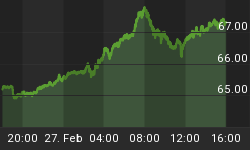As things move forward, I am expecting Country Risk and related issues to be an ever increasing investment/trading focus. Before embarking on what I am forecasting in this regard, it strikes me as important to spell out what I include as Country Risk issues - a list of things that I continuously add to as I read and think more about this.
Wikipedia defines 'Country Risk' as "the risk of investing in a country, dependent on changes in the business environment that may adversely affect operating profits or the value of assets in a specific country".
Broadly, when I think of Country Risk in an investment or trading context I currently principally focus on (for each country in question) the:
- political stability;
- political ideology;
- history and prospective interaction between the federal, state and municipal specific governments to foreign companies;
- population demographic;
- population standard of living, and perceived societal disruption risk;
- federal government currency policies, controls and prospective foreign exchange rates;
- prospective federal and state government regulatory change;
- government focus (federal, state and municipal) on human rights issues;
- current and prospective income tax system and rates; and,
- Corporate operating costs and risks that are country specific, including external infrastructure availability, geographic remoteness of operations, labour force availability, etc.
Again, I think the probabilities are high that going forward Country Risk issues will become increasingly important in investor and trader risk analysis. Accordingly, in the next few weeks we will be adding - what we think will be - a highly useful and important Investor/Trader Country Risk research component data feature to StockResearchPortal.com.
With respect only to societal change, societal demands and external influences that I think are 'Country Risk' related, to cite but one example see 'Zambia Copper Mines Caught Between Miners and Chinese Investors' - reading time 5 minutes. If you invest or trade in mining and oil & gas equities I strongly suggest you read this article, think hard about what you have read, and discuss Country Risk in a general sense and conceptually with your investment advisor(s), using that article and this commentary as a 'taking-off point' in that discussion.
With respect to the article, in summary it reports/says:
-
That Zambia's recently elected President, Michael Sata, campaigned during his election run against foreign investors abusing Zambian workers, but post-election has "insisted foreign investors are welcome so long as they abide by the laws". My comment: I am not sure what this means in the context of enhanced Country Risk. I also am not sure I would conclude Sata necessarily has 'toned anything down'. "Abide by the laws" has to mean the laws of the day, which can be changed to the detriment or advantage of any foreign company operating in Zambia at any time;
-
Zambia's economic success is dependent on exploiting its copper and other natural resources, while at the same time ensuring higher living standards for its citizens. My comment: I have little doubt this same general comment can be applied to every other developing country, and for that matter to all developed countries as well;
-
Chinese companies have come under attack for perceived worker abuse related to long working hours and substandard health and safety conditions. My comment: While Chinese companies may be targeted, all companies, foreign or otherwise, operating in any developing or developed country will increasingly face 'human rights' issues and mandates going forward. Such initiatives, while difficult to argue against in an ever evolving world society, will not come without economic costs. Those economic costs ultimately will have to be reflected in increased industrial and consumer prices - which will be a stretch absent global and country specific economic growth; and,
-
Zambia intends to increase State Ownership of mines to 35% "in coming years", but its Mines Minister has said "such moves will only be done in consultation with mining companies and will not lead to nationalization". My comment: I see such statements as highly worrisome for at least the following reasons:
- Governments and government policies change over time. What is 35% today may become 55% (or some other percentage) tomorrow,
- resource companies expend serious capital to develop immovable resource properties, and so are 'stuck' as it were with political and societal factors beyond their control, and
- I think 'balance' is important in things, and - like many things political - I think going forward vocal minorities may lead to imbalanced results. Intuitively from what I have read over the past several years, companies operating in developing countries that are accused of 'bad practices' may in some instances be subjected to a 'guilty until proven innocent' circumstance, instead of an 'innocent until proven guilty' one.
Clearly, in my view, these are things to think hard about if you invest or trade in resource company equities.















